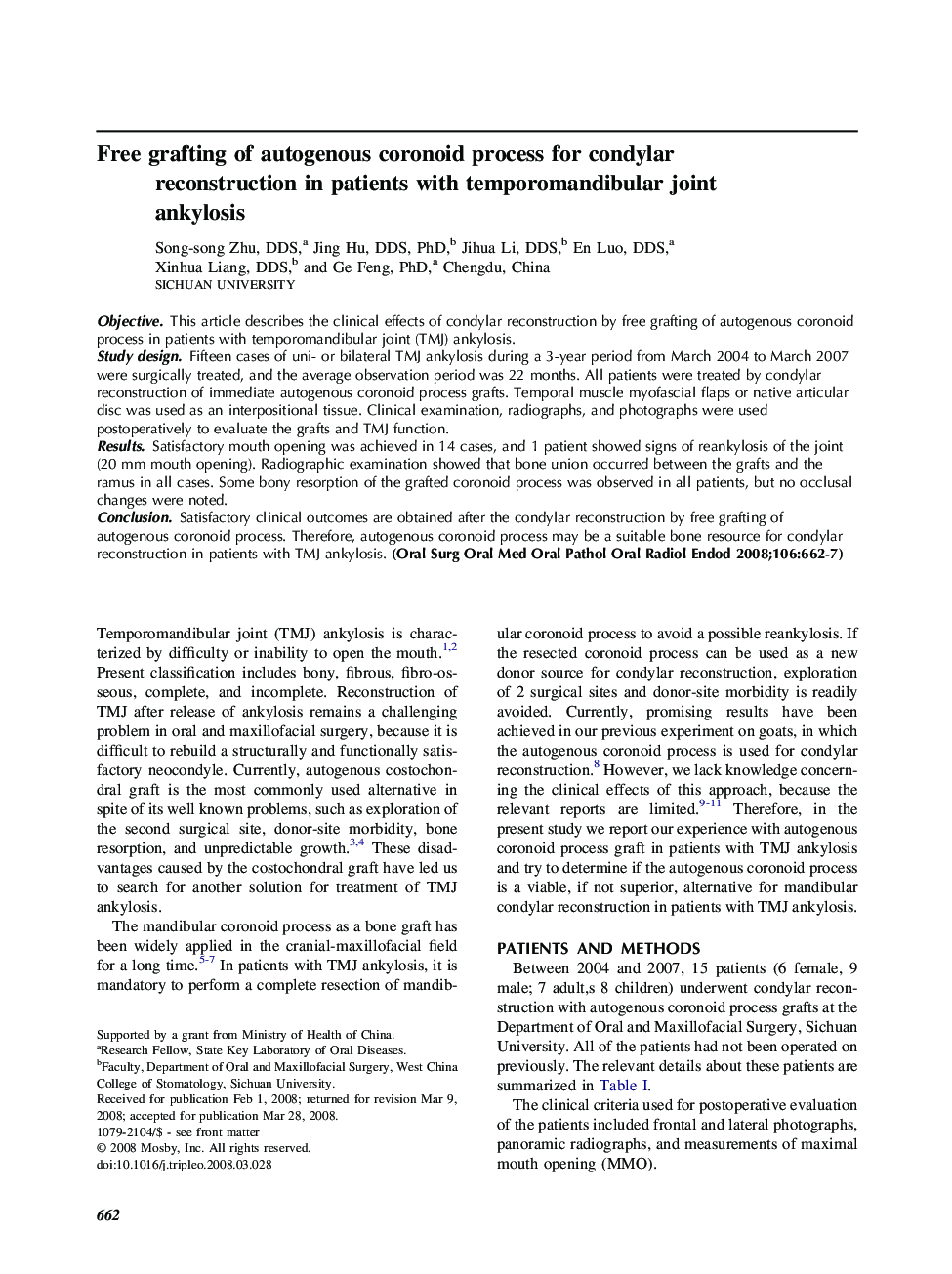| Article ID | Journal | Published Year | Pages | File Type |
|---|---|---|---|---|
| 3168706 | Oral Surgery, Oral Medicine, Oral Pathology, Oral Radiology, and Endodontology | 2008 | 6 Pages |
ObjectiveThis article describes the clinical effects of condylar reconstruction by free grafting of autogenous coronoid process in patients with temporomandibular joint (TMJ) ankylosis.Study designFifteen cases of uni- or bilateral TMJ ankylosis during a 3-year period from March 2004 to March 2007 were surgically treated, and the average observation period was 22 months. All patients were treated by condylar reconstruction of immediate autogenous coronoid process grafts. Temporal muscle myofascial flaps or native articular disc was used as an interpositional tissue. Clinical examination, radiographs, and photographs were used postoperatively to evaluate the grafts and TMJ function.ResultsSatisfactory mouth opening was achieved in 14 cases, and 1 patient showed signs of reankylosis of the joint (20 mm mouth opening). Radiographic examination showed that bone union occurred between the grafts and the ramus in all cases. Some bony resorption of the grafted coronoid process was observed in all patients, but no occlusal changes were noted.ConclusionSatisfactory clinical outcomes are obtained after the condylar reconstruction by free grafting of autogenous coronoid process. Therefore, autogenous coronoid process may be a suitable bone resource for condylar reconstruction in patients with TMJ ankylosis.
